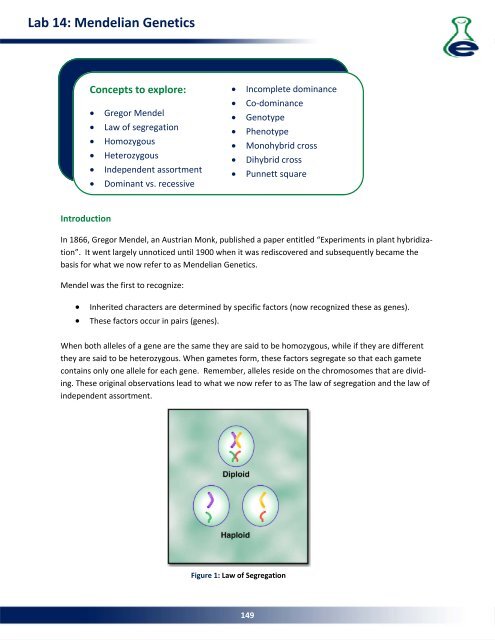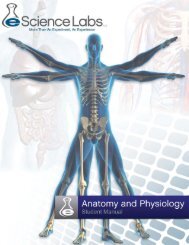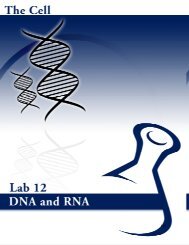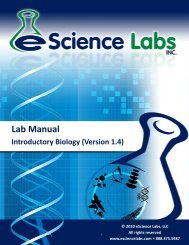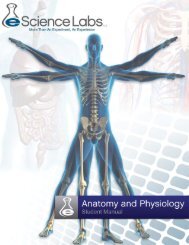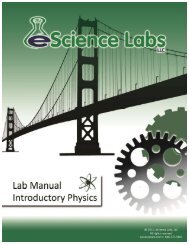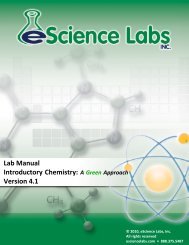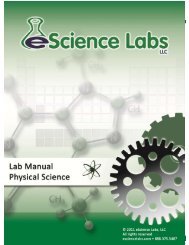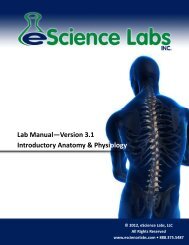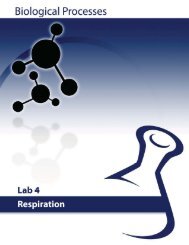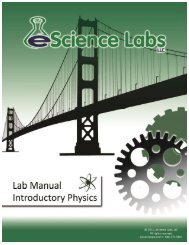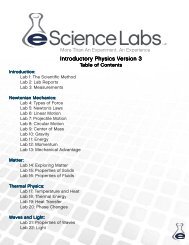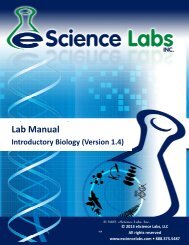Lab 15: Population Genetics - eScience Labs
Lab 15: Population Genetics - eScience Labs
Lab 15: Population Genetics - eScience Labs
Create successful ePaper yourself
Turn your PDF publications into a flip-book with our unique Google optimized e-Paper software.
<strong>Lab</strong> 14: Mendelian <strong>Genetics</strong><br />
Concepts to explore:<br />
Gregor Mendel<br />
Law of segregation<br />
Homozygous<br />
Heterozygous<br />
Independent assortment<br />
Dominant vs. recessive<br />
<br />
<br />
<br />
<br />
<br />
<br />
<br />
Incomplete dominance<br />
Co‐dominance<br />
Genotype<br />
Phenotype<br />
Monohybrid cross<br />
Dihybrid cross<br />
Punnett square<br />
Introduction<br />
In 1866, Gregor Mendel, an Austrian Monk, published a paper entitled “Experiments in plant hybridization”.<br />
It went largely unnoticed until 1900 when it was rediscovered and subsequently became the<br />
basis for what we now refer to as Mendelian <strong>Genetics</strong>.<br />
Mendel was the first to recognize:<br />
<br />
<br />
Inherited characters are determined by specific factors (now recognized these as genes).<br />
These factors occur in pairs (genes).<br />
When both alleles of a gene are the same they are said to be homozygous, while if they are different<br />
they are said to be heterozygous. When gametes form, these factors segregate so that each gamete<br />
contains only one allele for each gene. Remember, alleles reside on the chromosomes that are dividing.<br />
These original observations lead to what we now refer to as The law of segregation and the law of<br />
independent assortment.<br />
Figure 1: Law of Segregation<br />
149


